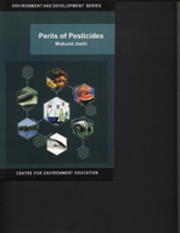3 - Pesticides in Nature
Published online by Cambridge University Press: 26 October 2011
Summary
General Issues
On application a pesticide may kill the target pest or bring about its dysfunction. However, a relatively small quantity of the pesticide is utilized for this purpose. A larger part of it is either received by the soil surface or the water contained in the soil or absorbed by the plant body. Each of these may decide the fate of the applied pesticide in different ways.
The fate of a pesticide is principally dependent upon:
Type of pesticide and formulation used.
Physico-chemical nature of pesticide (ionic/molecular form).
Concentration of applied pesticide.
The area where it is received and period of exposure.
Atmospheric conditions (temperature, relative humidity, sunlight, rain, mist or fog).
Nature of soil — its texture, its organic matter content, its cation exchange capacity and chemical composition).
Availability of moisture (quantity and period of availability).
Composition of microbes in the soil.
Transportability of soil particles (erosion which is dependent upon slope and soil texture).
Physico-chemical nature of soil characterized by pH, drainage, and soil enzymes. (Appendix I)
It will be obvious from the above that several factors influence the fate of pesticides in the soil. The applied pesticide hardly remains in the place of its application in the same form. It is continuously degraded (by photochemical, chemical and microbial processes), retained (by adsorption into soil particles or absorption into water) or physically transported from the site (by erosion of soil particles or movement of water).
- Type
- Chapter
- Information
- Perils of Pesticides , pp. 13 - 21Publisher: Foundation BooksPrint publication year: 2005



